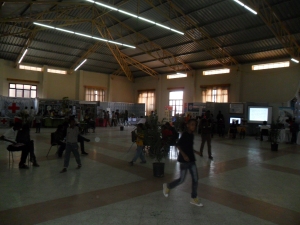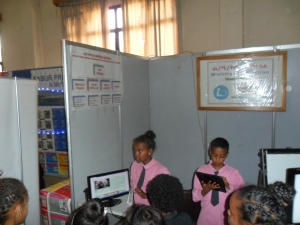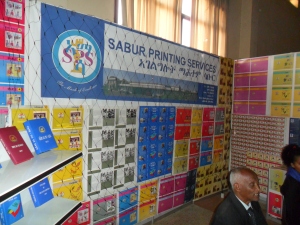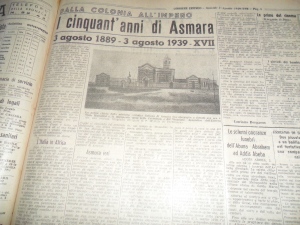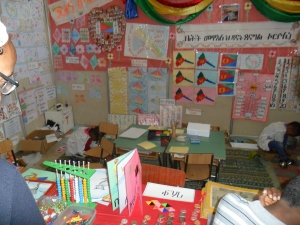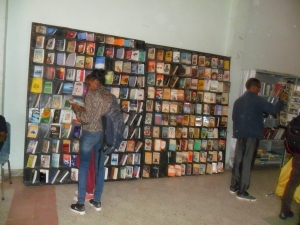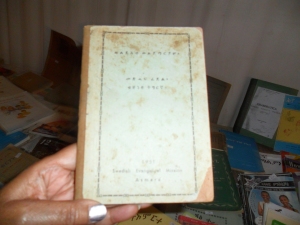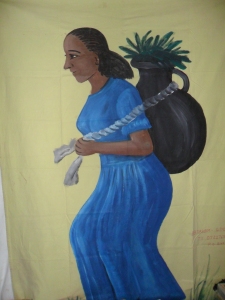For the past week, Eritrea’s 16th annual Book Fair has been taking place in Asmara, the capital. Convening at the Expo Grounds, the event is a wonderful opportunity to meet local authors, purchase great books at a super price (many are available at highly discounted rates), support important local initiatives, and learn more about the country.
Here are some photos from my visit.
Dozens of stalls featuring many wonderful items. Great to see so many young faces.
Dozens of stalls featuring many wonderful items. Great to see so many young faces.
The RORA Digital Library has played an important role in improving access and quality of education.
A nation is “like an individual [person]; until it uses its own talent, takes pride in its own history, expresses its own culture, affirms its own selfhood, it can never fulfill itself.” — Malcolm X
“Today a reader, tomorrow a leader.” – Margaret Fuller.
I enjoyed this stall. A great collection of classic logos! Sabur Printing Services.
#Eritrea
An old newspaper – August 1939!
Some of my favorite stalls, offering materials for youth and students.
A young, low-income country located in the fractious Horn of Africa (HoA) region, Eritrea has prioritized education as a key pillar within its national policy and broader framework for development, socio-economic growth, and poverty alleviation.
There is little doubt that the country faces challenges in many areas, including education; at the same time, a lot of progress has been achieved in a short period, which should not be overlooked. Yet, as with most coverage of Eritrea in general, mainstream analyses and discussions of education (across all levels) are often cursory, lacking in context, or plagued with various shortcomings.
Eritrea’s efforts at improving access to and opportunities within education actually date back to the days of the country’s decades-long independence struggle. The independence movement, led by the Eritrean People’s Liberation Front (EPLF), developed an elaborate system of educational programs and institutions to extend education to the children of fighters, orphans, refugees, and groups traditionally excluded from opportunities to learn, such as women, nomads, and rural populations.
However, even while the efforts to offer education during the struggle were commendable, at independence the country’s literacy rates (across all ages) were quite low, particularly for girls and women, and overall enrollment rates (within primary levels) hovered around 30 percent. Within that context, at independence, education was made compulsory, for both girls and boys, and the country also proceeded to build hundreds of schools in both rural and urban areas.
As well, initiatives were begun to offer education in the various languages used within the country, helping ensure access to all ethno-linguistic groups. Largely as a result of the country’s investment – government expenditure on education is between 8-10 percent of the national budget – and various other efforts, Eritrea’s primary enrollment rates are now approximately 90 percent, while both gender disparity and adult literacy have dramatically improved. Importantly, literacy rates for youth in Eritrea are considerably higher than those for adults, suggesting that the country’s efforts to strengthen the supply and quality of basic education programmes have largely been successful, and should be continued and augmented.
What a find! Authored by Woldeab Woldemariam, who is a key Eritrean historical figure and often described as “the father” of Eritrean independence.
A remarkable image! Eritrean women, and women from the Global South in general, are often depicted in outdated, paternalistic, and grossly inaccurate ways. They are frequently portrayed as “inefficacious, poor, residing in hovels, having too many children, illiterate, ignorant, tradition-bound, victimized, and either dependent on a man for survival or impoverished because they lack one.” For me (and many others), however, Eritrean women are among the most powerful and admirable individuals one may come across. Eritrean women were key to turning Eritrea’s dreams of independence into reality, and today they are central pillars of households, communities, and the nation.


